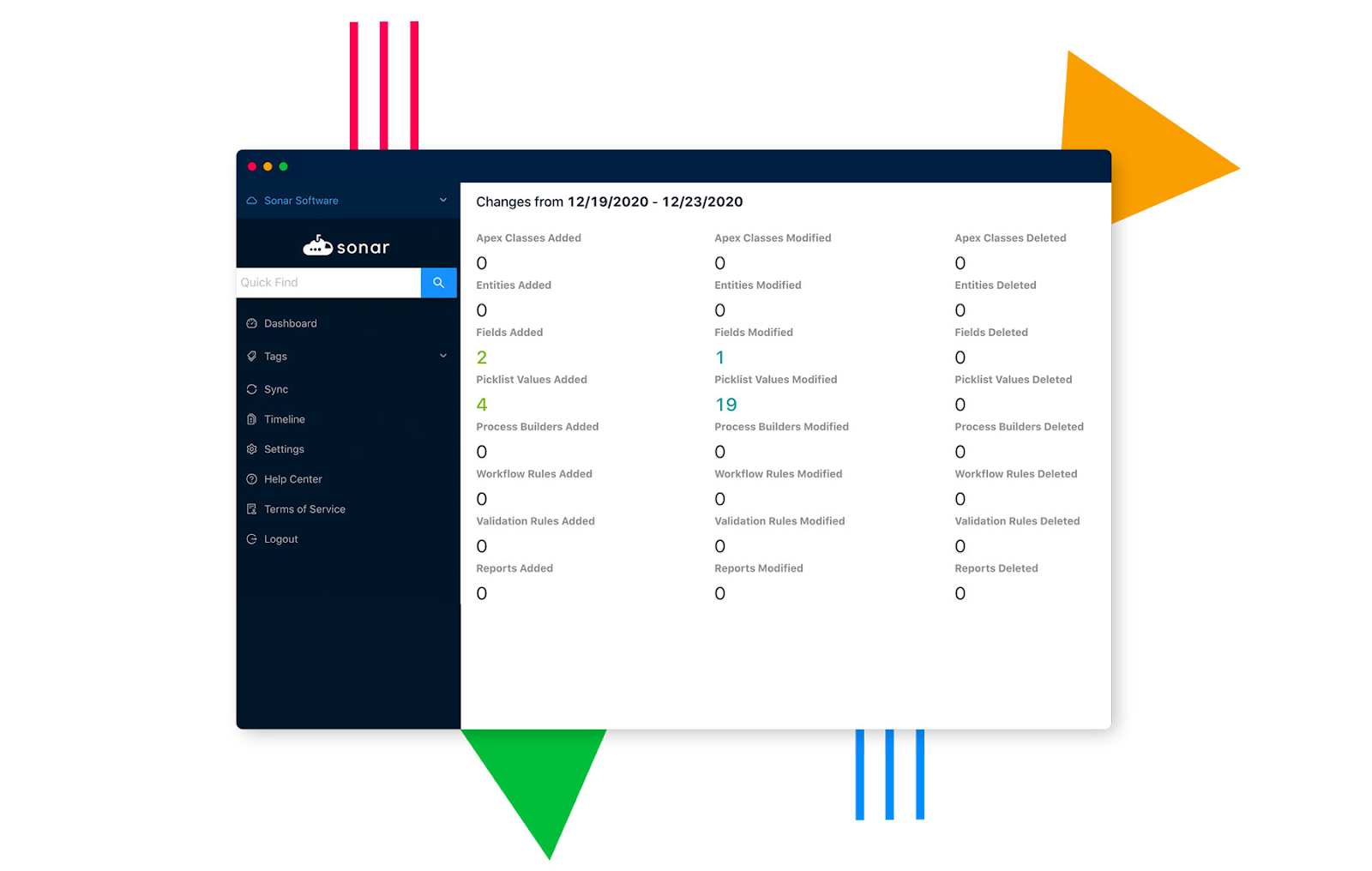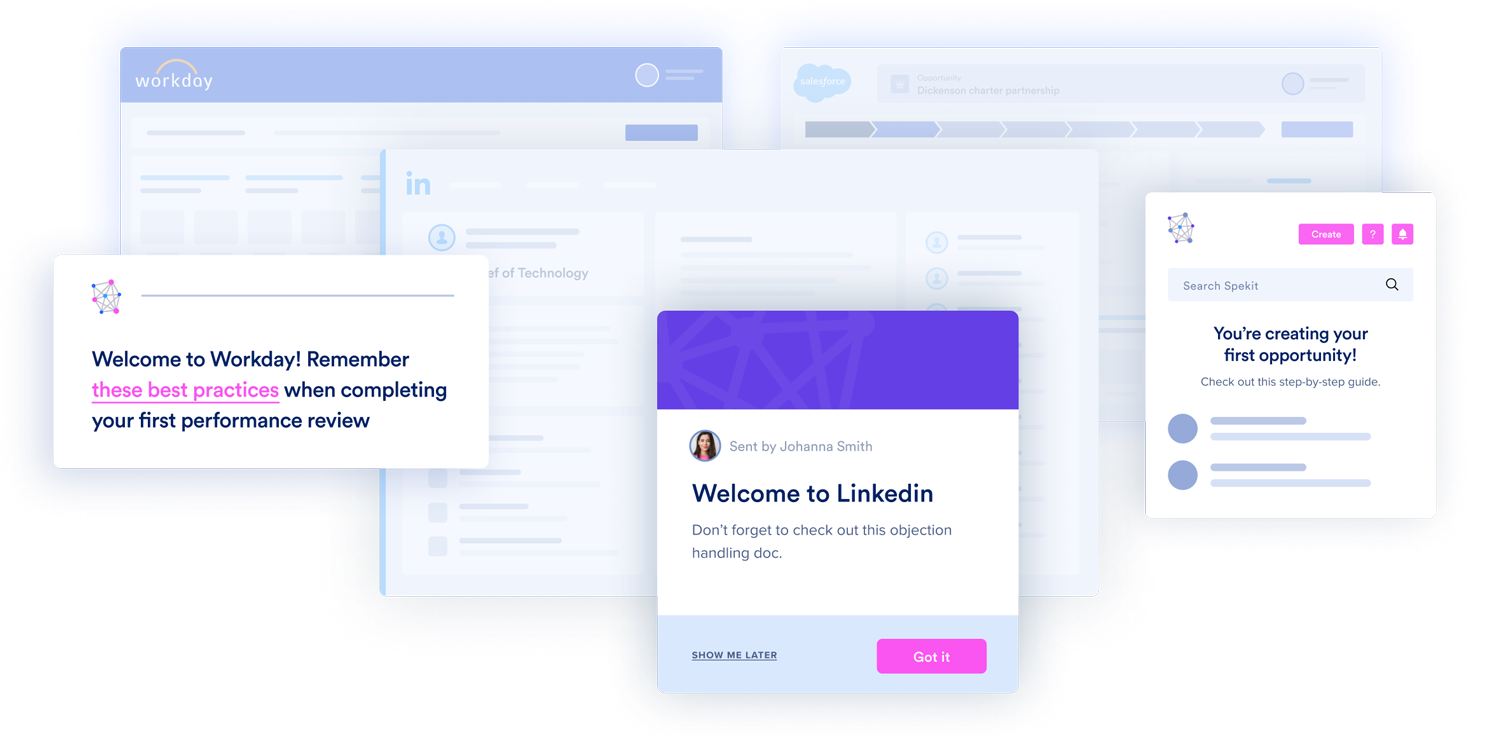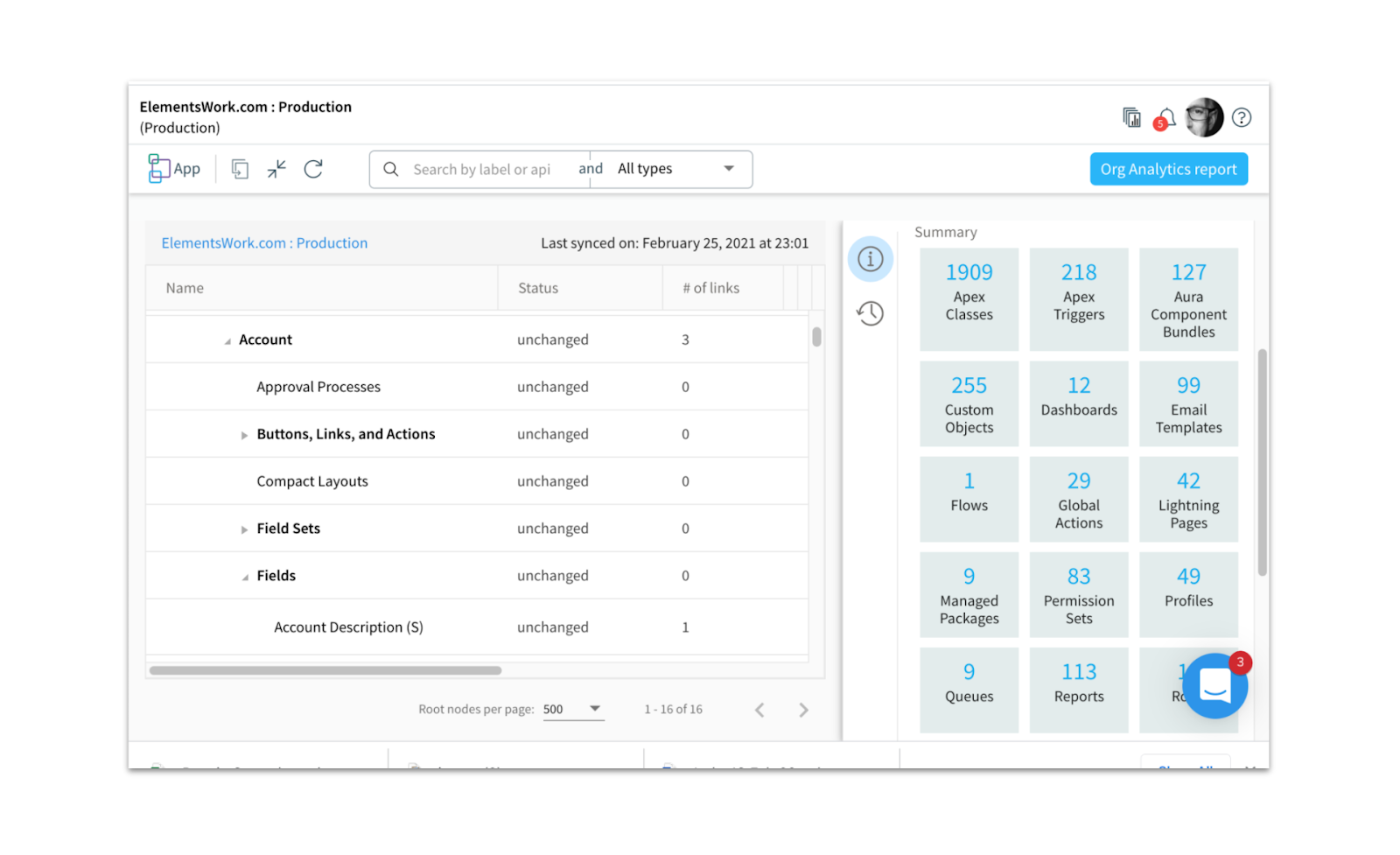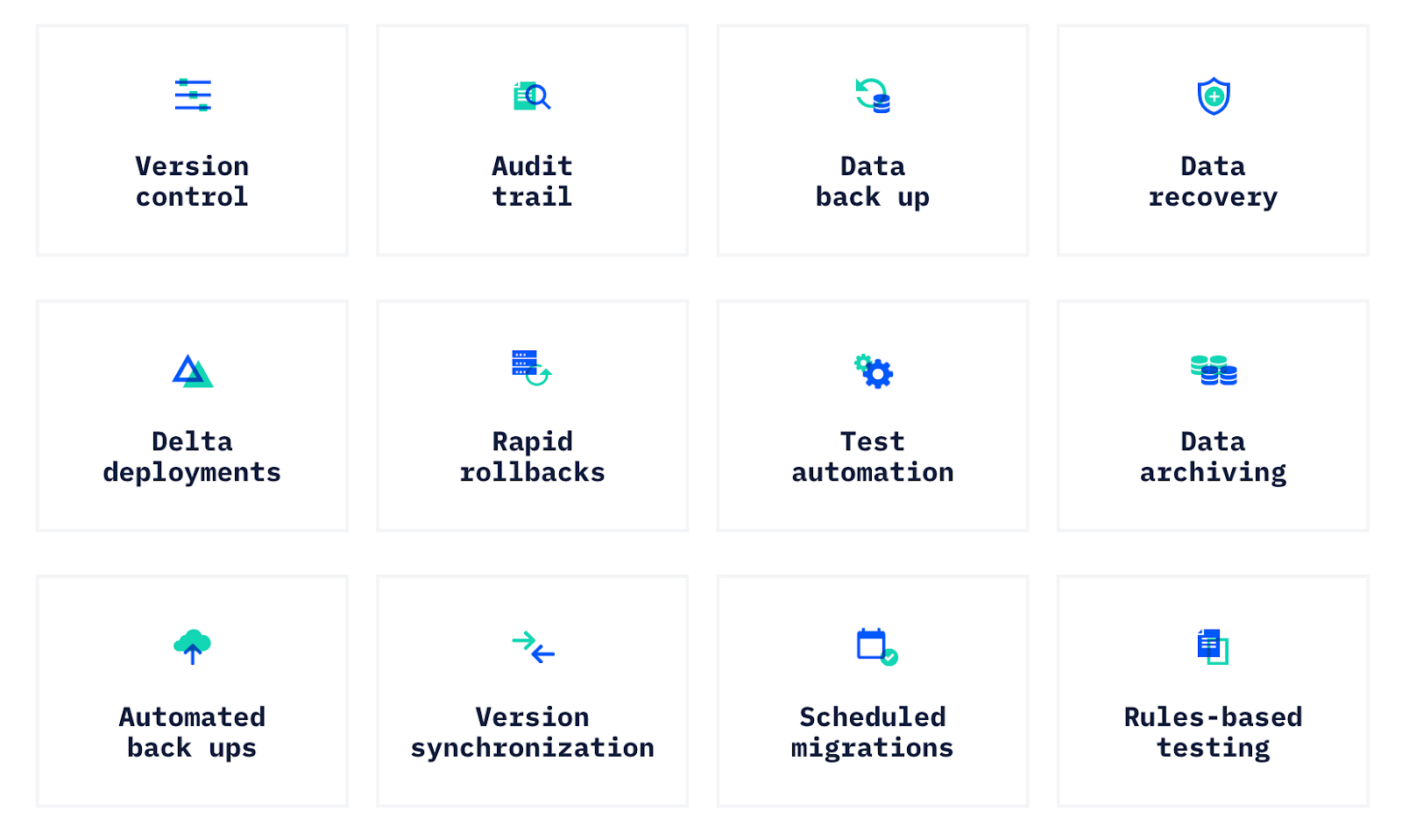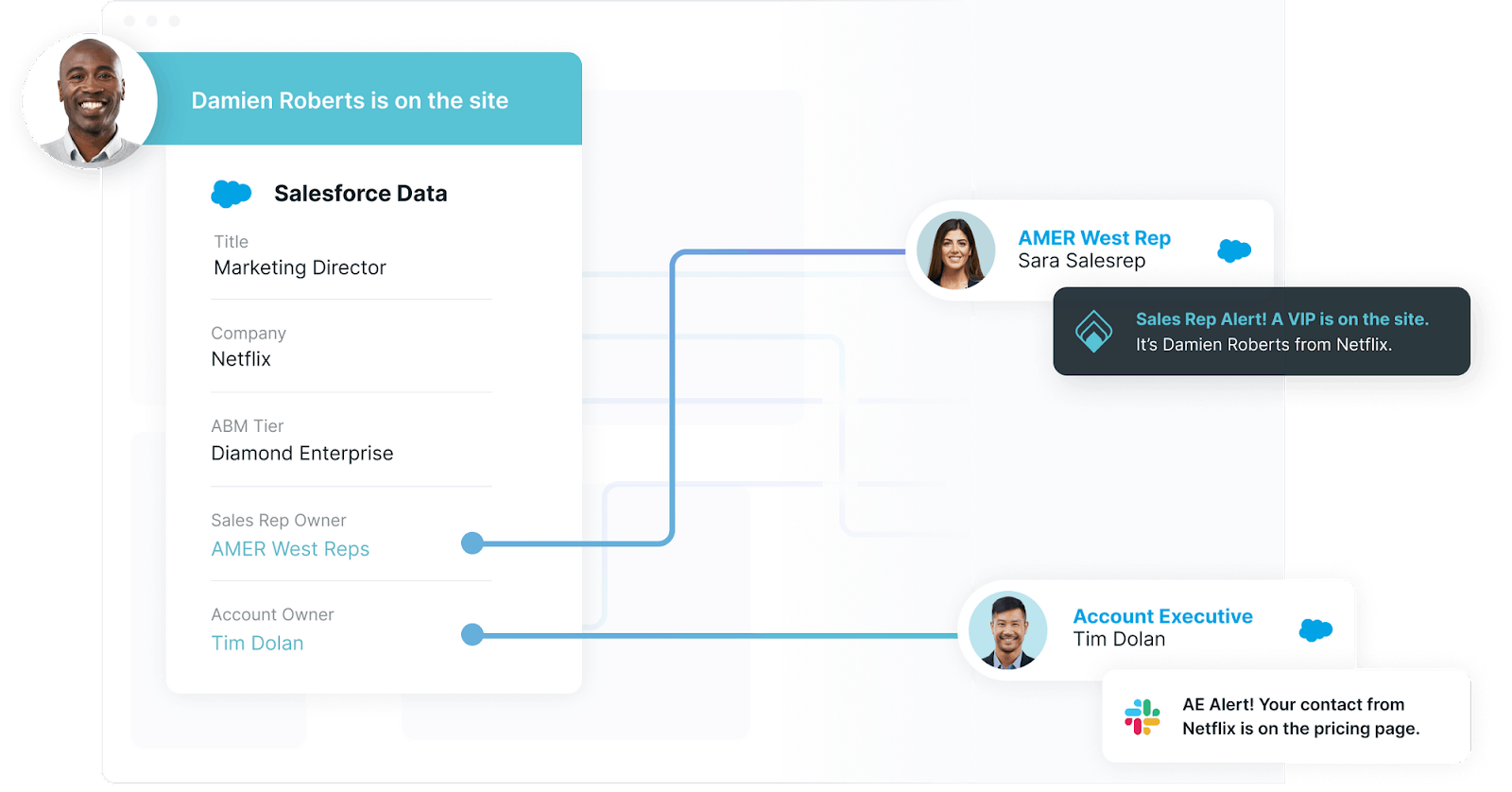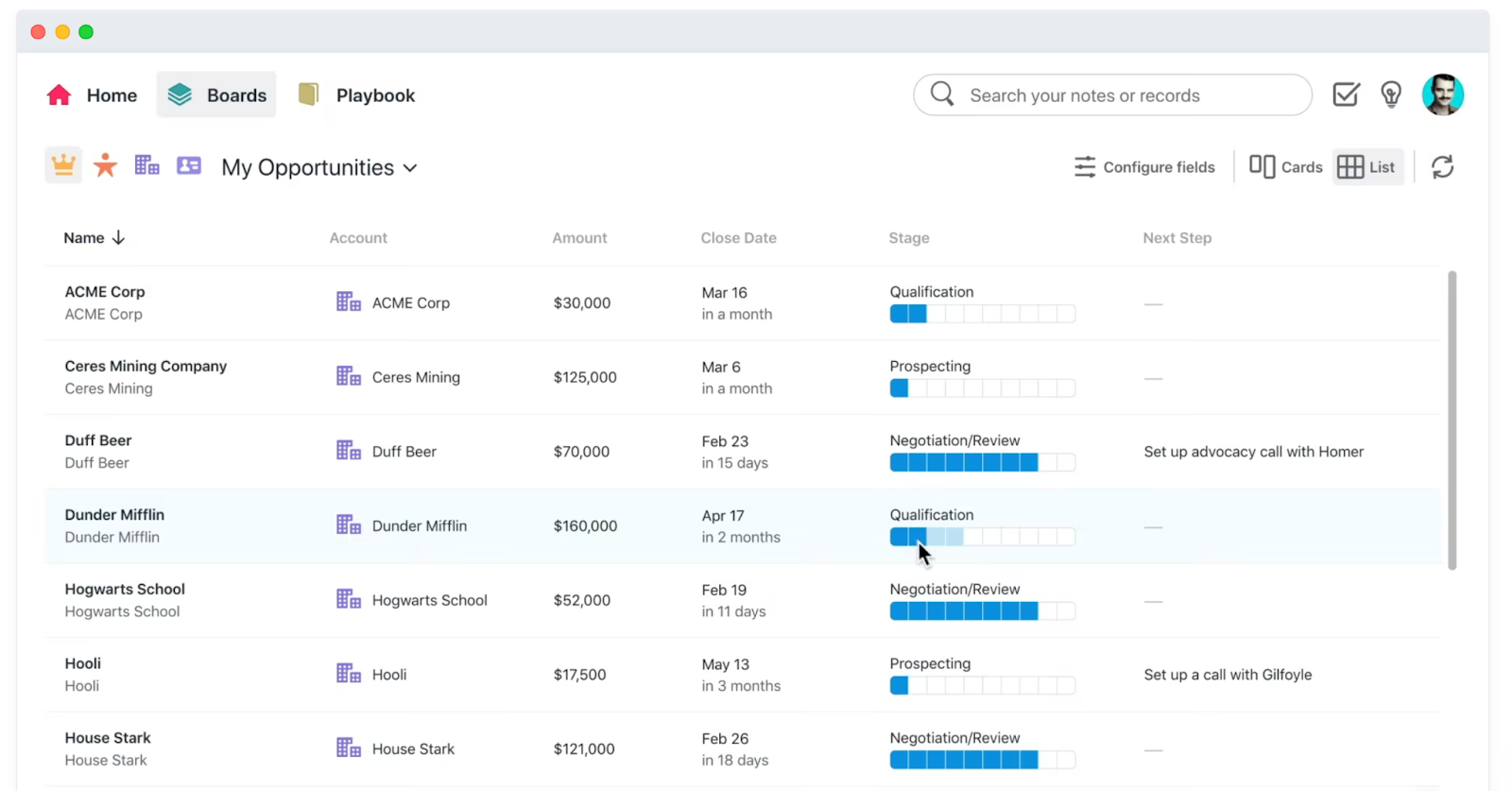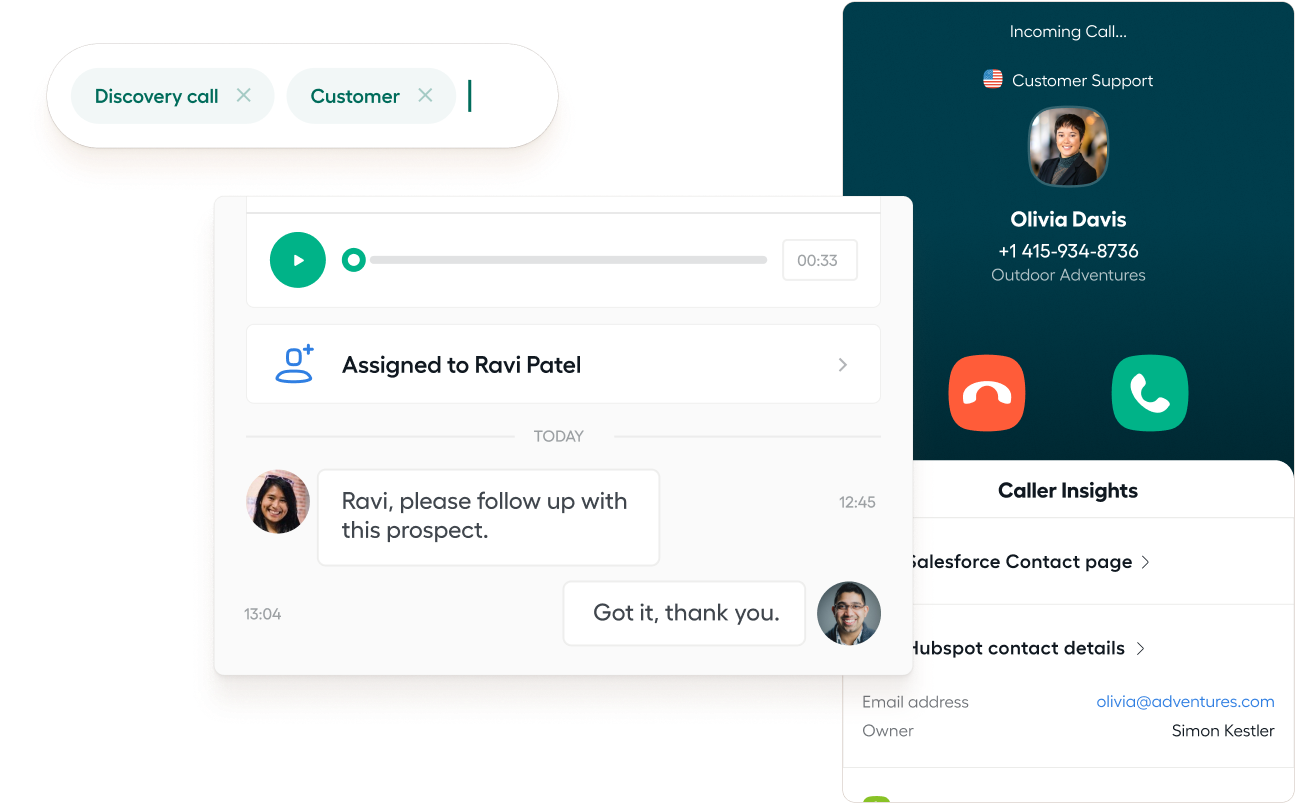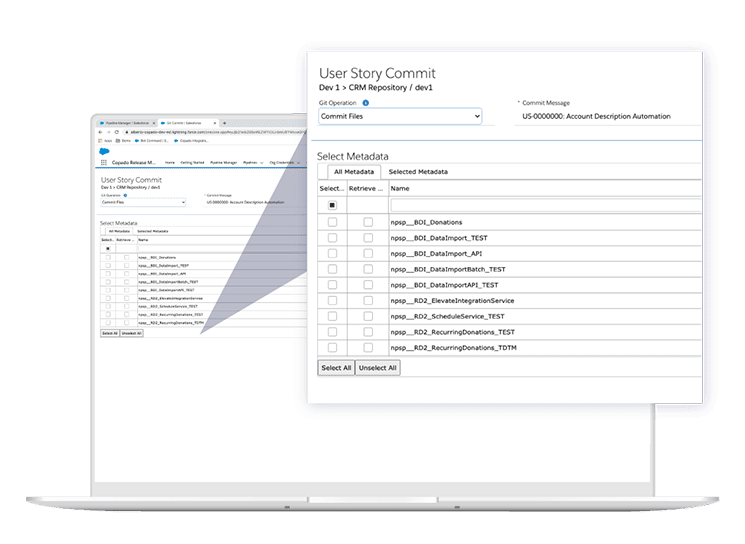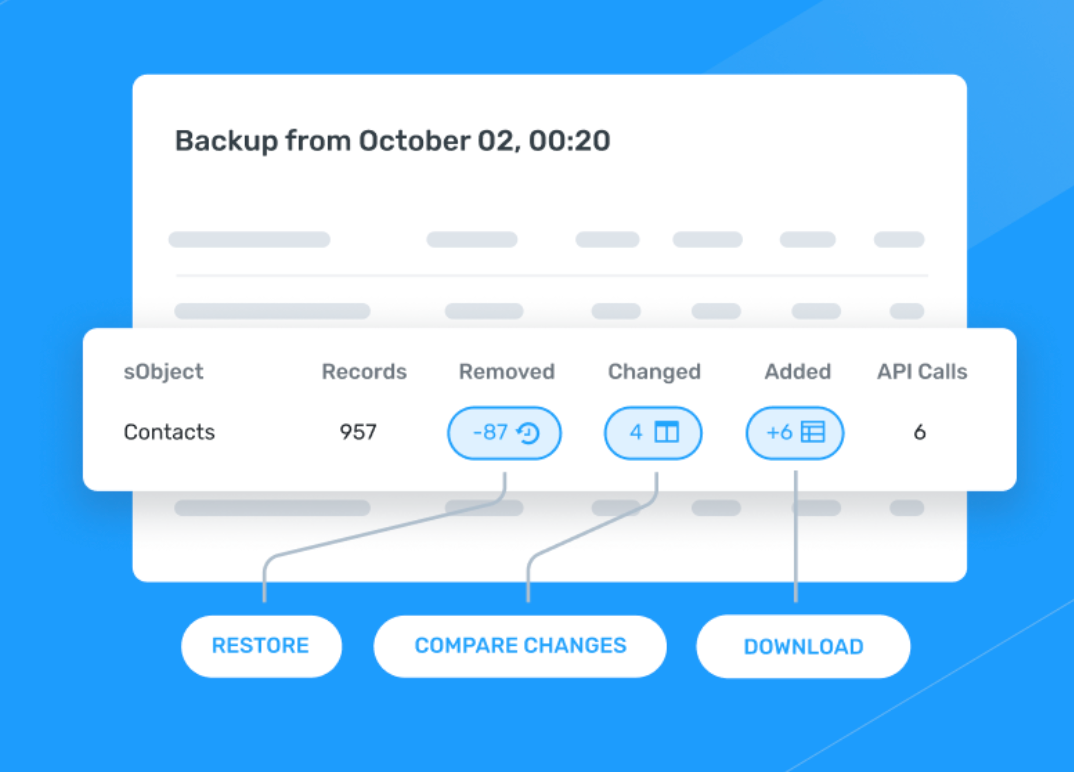The Salesforce partner ecosystem attracts app developers at the top of their game – after all, the chance to build on the Salesforce platform (the world’s #1 CRM) and get in front of its customer base* is a prime opportunity to make waves in SaaS.
Salesforce, themselves, are currently worth $230 billion, projected to reach revenues of $50 billion by 2026 (and potentially worth more than Microsoft by 2030). Salesforce isn’t the only beneficiary of this skyrocketing growth – its partner ecosystem is also receiving attention. According to IDC predictions, ecosystem revenues are projected to be almost 6 times larger than Salesforce’s revenue by 2024.
These partners extend the Salesforce platform, plugging functionality gaps that exist in the core products. ‘Hitting the nail on the head’ has led to huge investments in the most promising of partners. The featured partners cover a broad range – from org intelligence, DevOps, security, to user experience – and have all received major investment rounds in 2021.
Let’s take a look at who’s generating a buzz around the Salesforce ecosystem, and beyond.
(*app partners typically have listings on the Salesforce AppExchange, although this is not a prerequisite. Not all the vendors featured list on the AppExchange)
Sonar
- Funding: $12m
- Funding details: Series A, 30 Mar 2021 (Press release, Crunchbase profile)
- Category (self-described): Change Intelligence
- Target persona/s: Sales Ops, RevOps, Marketing Ops.
Sonar is the ‘new kid’ on the block, founded in October 2018. Their “change intelligence platform” is best described using the submarine analogy that characterizes their brand:
“Sonar helps teams who feel underwater and in the dark get signals and navigate around the problems that are hard to see in tech stack integrations.”
In tech-talk, this means identifying the fields, metadata, dependencies between platforms in your tech stack – ‘if I make a change here, what impact will it have there’.
Read more: $44m+ Funding Injection for Salesforce Org Intelligence Apps
Spekit
- Funding: $12.2m,
- Funding details: 30 Mar 2021 (Press release, Crunchbase profile)
- Category (self-described): Digital Enablement, “in-app digital companion”
- Target persona: Salesforce Admins, end-users.
Designed around the employee experience, Spekit aims to be a user’s companion, with an emphasis on guidance for sales enablement (particularly valuable for new employee onboarding).
Spekit began as a data dictionary that remains core to their platform, allowing you to automatically map and document all fields in your Salesforce org. In short – Spekit takes what the Salesforce Admin, product owner, etc. has documented, and puts it in front of Salesforce users.
Read more: $44m+ Funding Injection for Salesforce Org Intelligence Apps
Scratchpad
- Funding: $16.6m
- Funding details: Series A, Feb 2021 (Press release, Crunchbase profile)
- Category: User experience, sales productivity.
- Target persona/s: Sales end-users.
Scratchpad leads with the promise to update and manage your pipeline in Salesforce ‘like never before’, imitating a spreadsheet (where frustrated sales users typically end up):
“Salesforce is a great database, but as a place to do your work it’s slow to load, requires too many clicks and countless browser tabs…Scratchpad combines sales notes, spreadsheets, tasks, Kanban boards, search, collaboration, and sales process adherence in one simple and intuitive workspace”
Provar
- Funding: $17m,
- Funding details: Feb 2021 (Press release, Crunchbase profile)
- Category (self-described): Digital Enablement, “in-app digital companion”
- Target persona: Release Managers/Engineers, Salesforce Developers, Salesforce Admins.
“Salesforce is easy to update but it can introduce risk if you don’t have a full understanding of what you are about to impact. That’s why it’s important to build a comprehensive library of tests to protect your business-critical processes to find and fix bugs early in the development process” Geraint Waters, Provar CEO
Elements
- Funding: $20m
- Funding details: Jul 2021 (Press release, Crunchbase profile)
- Category (self-described): Configuration knowledge platform
- Target persona/s: Business Analysts, Salesforce Consultants, Salesforce Developers, Salesforce Architects.
How Elements supports Salesforce orgs can be split into two main parts. Firstly, the analysis of a Salesforce org (incl. AppExchange packages), including dependency analysis, and the impact changes could have on your org (aka. org impact).
Their second focus is documentation. Their ethos is that Salesforce org documentation must be contextual and related to the configuration itself, otherwise, insight into dependencies is lost.
Read more: $44m+ Funding Injection for Salesforce Org Intelligence Apps
AutoRABIT
- Funding: $27m
- Funding details: Jun 2021; Series A, Mar 2021 (Press release, Crunchbase profile)
- Category: DevOps
- Target persona/s: DevOps Engineers, Release Managers/Engineers.
Salesforce DevOps has been heating up recently, as teams are responsible for increasingly complex and frequent deployments. AutoRABIT’s website points out that “Salesforce was built to be a CRM, not a development platform…so there’s an entire suite of tools missing”, such as version control, rapid roll-backs, test automation, etc. As the Salesforce ecosystem gets up to speed on the importance of DevOps, providers like AutoRABIT will certainly grow their customer base!
AppOmni
- Funding: $53m
- Funding details: Series B, Apr 2021; Series A, Jan 2020 (Press release, Crunchbase profile)
- Category: SaaS Security Posture Management (SSPM)
- Target persona/s: Salesforce Admins, etc.
AppOmni offers a platform that makes it easy for Security Teams to align with their IT counterparts to continuously monitor and secure SaaS deployments (eg, Salesforce, Work.com, O365, Github, etc.)
Salesforce Admins aren’t security experts. Data access modelling in Salesforce can be extremely complex, especially as the deployment grows. Admins can automate the manual work that goes into understanding who is being provisioned access, answering “who has access to my data, and how?”
AppOmni’s co-founders were former Security Executives at Salesforce (the CEO held the ‘Chief Trust Officer’ role) which is a clear indication that they have discovered a significant gap that ought to be filled!
Qualified
- Funding: $68m
- Funding details: Series B, May 2021; Series A, Aug 2020 (Press release, Crunchbase profile)
- Category: Conversational marketing platform
- Target persona/s: marketers, demand gen, sales end-users.
Conversational Marketing is a new, modern way of selling that Qualified have dominated in the Salesforce space. It gives high-intent buyers and sales teams a better, easier way to connect by opening the door for real-time conversations via chatbots and live meetings, right on your website.
And if that’s not enough to convince you in Qualified, they were selected to provide the AppExchange with live chat – a prime-time opportunity, that rolled out in 2021 after a successful pilot.
Dooly
- Funding: $102.3m
- Funding details: Series B, May 2021; Series A, Mar 2021 (Press release, Crunchbase profile)
- Category: User experience, sales productivity.
- Target persona/s: Sales end-users.
Similar to Scratchpad (featured earlier), Dooly enables sales teams to ‘update Salesforce 10x faster’ and to ‘save 5+ hours of Salesforce gruntwork every week’. 1-click edits you can make from one easy dashboard, imitating the spreadsheets that salespeople long for.
Aircall
- Funding: $225.6M
- Funding details: Series D, Jun 2021; Series C, May 2020 (Press release, Crunchbase profile)
- Category: Telephony
- Target persona/s: Salesforce Admins, end-users, sales/service managers.
Telephony is a Salesforce functionality gap that’s often raised. Sales and services teams spend a significant amount of time on the phone, and the data these calls generate should be related back to the CRM. It’s no wonder telephony is in-demand by so many organizations using Salesforce. Aircall have certainly capitalized on this demand.
As a cloud call centre solution, there’s no need for hardware; “No hardware. No headaches” their website claims. Users love Aircall for its intuitive user experience (take and transfer calls), its connectivity to CRMs and chatbots, and rapid setup.
Copado
- Funding: $270.8m
- Funding details: Series C, September 2021; Series B, Feb 2021, Jun 2020 (Press release, Crunchbase profile)
- Category: DevOps
- Target persona/s: DevOps Engineers, Release Managers/Engineers.
The second DevOps platform that’s caught investors’ attention – to the tune of $270m+! Copado enables faster, error-free releases with continuous integration and delivery (CI/CD) technologies. Built 100% natively on the Salesforce platform, fully integrated with Salesforce Clouds and DX.
Copado’s enterprise-class DevOps platform has already attracted customers such as Kuka, Linde, Siemens, eBay, and many more. As I mentioned, as the Salesforce ecosystem gets up to speed on the importance of DevOps, providers like Copado will certainly grow their customer base.
OwnBackup
- Funding: $507.3m
- Funding details: Series E, August 2021; Series D, Jan 2021 (Series E press release, Series D press release, Crunchbase profile)
- Category: Data backup and restore
- Target persona/s: Salesforce Admins, etc.
Coming up on top is Salesforce data backup dominant, OwnBackup. In fact, in the time between writing this post and publication, OwnBackup pretty much doubled their total investment (from $267.3, thanks to $240 from a single investment round!)
Their solution “proactively prevents you from losing mission-critical data and metadata with automated backups and rapid, stress-free recovery”. Aside from backup and recovery, they also offer “Archiver” (preserves data with customizable retention policies), and sandbox seeding.
Salesforce backup & restore has an interesting history. Early in 2020, Salesforce announced their plans to retire their Data Recovery Service, by July the same year. The news itself didn’t make those responsible for Salesforce data, but brought to light that you are responsible for backup (not Salesforce). This has fuelled Salesforce customers’ uptake of third-party backup providers.
In a twist of events, Salesforce later reversed their decision to end the Data Recovery Service; however, the service costs $10,000 and can take around 6-8 weeks to get the data and metadata restored. Due to these negatives, a huge advantage remains for third-party providers, like OwnBackup – a very attractive investment opportunity, indeed!












